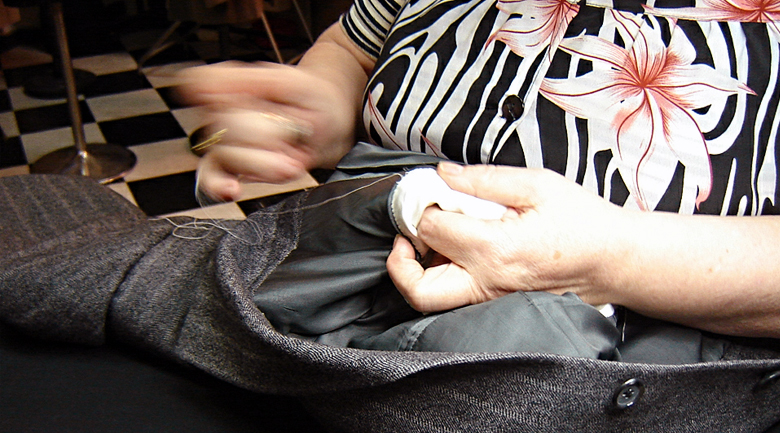
A look at three blunders with the seamstress, the translator, and me
Picture it: me – an English speaker, a friend who speaks English and Malayalam, her mother who speaks Malayalam and Hindi, a seamstress who only speaks Hindi. While trying to get a blouse stitched (the shirt thing-y that goes under a sari), I had a chuckle to myself as I was in the position of so many of my clients. For once, I was the one not “in the know.” I took this rare opportunity to be a fly on the wall of a situation in which I was the cause of the cultural blunders.
Blunder #1
I removed my shoes AFTER entering the home.
While I know shoes are never worn in most Indian and Indian-American homes, I allowed my surroundings to cloud my awareness. It’s easy to remember the cultural cues when you are living in that culture, but it’s completely another to straddle the line of “here” and “there.” One tip is to do what I call a quick “culture check.”
If I know I have a meeting with someone from another country, I try to remind myself of the most important greetings. If I’m engaging with a new culture with which I have limited experience, I watch others around me. Graciously offer for someone else to speak or act first. Not only do you seem meek and nice, you also gain the added advantage of “going second.” Once inside the home, I quickly kicked off my shoes and did a quick “Namaste, Auntie*!” to the seamstress. Crisis averted.
Blunder #2:
I didn’t match the seamstresses vocal tone.
When the seamstress wanted me to try on the blouse, I picked up on the social cue because she was handing it to me and pointing to a door off around the corner. But when I came out all smiles, excited that it fit, I was confused. She frowned, yelled and shook her head “no”. To be quite honest, I thought she was yelling at me!
After a quick mental check (blouse on correctly: check, pants zipped: check, everything in order: good to go), I had to ask my translator “Did I do something wrong?” I quickly discovered, much like Asian culture, craftsmanship is prided but the crafter is often modest and self-deprecating. I missed the cue to fawn over the blouse and reassure her just how perfect it was. Once I realized this blunder, I raised my voice and prided her in my very broken Hindi.
Blunder #3:
I tried to pay for all services before the job was completed.
I was quite pleased with the first blouse and had two more that needed to be made. When the topic of payment was broached, I offered to pay for the completed blouse and the two that she had yet to start. Thinking this a good idea, I handed the seamstress all of the money. She counted it, looked confused and gave me back the amount for the two blouses she would soon start. Imagine my surprise when the translator asked me with an apologetic look “Do you mind paying next time, when they are completed?” Of course not.
Afterward, I had the chance to ask why she didn’t want the money in advance. Again, from my American point of view, payment in advance is a plus. And even without an iron-clad contract, I was confident that the work would be done well. Most companies urge you to close sales early, get contracts signed as soon as possible so you can begin billing! My translator explained the importance of me being satisfied. The seamstress only wanted me to pay if and when I was happy with the finished product. Talk about customer service!
The takeaways
(1) Even in America, there are opportunities to be culturally savvy. Take a trip to a local ethnic grocer or cultural event for a complimentary lesson on cultural understanding.
(2) While we can’t always put ourselves in another culture’s shoes, we can take a moment to think about alternate possibilities. Consider alternate scenarios and how they would play out.
(3) Don’t mistake yelling for anger. Many cultures (African, Middle Eastern and Indian) speak with raised voice in intimate settings.
*Polite way to address someone of Indian descent who is older (Auntie/Uncle)
Monica Moffitt, founder and Principal Cultural Consultant at Tianfen Consulting, Inc., has traveled the world and enjoys linguistics and all things culture. Having split her career between project management and business analytics, Monica merges logic, fluency in Chinese and creativity in her new role as cultural consultant. She received a Bachelor of Arts in East Asian Studies/Chinese from Vanderbilt University and a Master of Business Administration (International Management and Marketing) from University of Texas at Dallas.








































LucerneExec
June 26, 2012 at 5:11 pm
@kwri great tweet! Love to get tips!